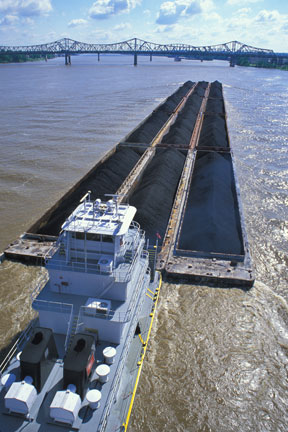Fax: 713-668-1980
Cell: 800-773-6770
[Protected]
Suite 300
Houston, TX 77057

to reveal contact details.
Little Rock Maritime Accident & Injury Lawyer | Little Rock Barge & Tugboat Injury Lawyer | Little Rock Jones Act Lawyer
 Little Rock Jones Act Lawyers & Little Rock Maritime Lawyers assist clients in a broad range of maritime and offshore accidents. Maritime law extends to passengers injured on a boat, but many times involves maritime workers and seamen injured on the job. The skilled Little Rock maritime attorneys advertised on this site are dedicated to pursuing your rights under the law and returning a verdict for monetary damages to help you and your family through the difficult times following an injury. If you are not a seaman or offshore employee, but have been injured in a cruise ship accident, click here. If you have been injured in a recreational boating or jet ski accident, click here.
Little Rock Jones Act Lawyers & Little Rock Maritime Lawyers assist clients in a broad range of maritime and offshore accidents. Maritime law extends to passengers injured on a boat, but many times involves maritime workers and seamen injured on the job. The skilled Little Rock maritime attorneys advertised on this site are dedicated to pursuing your rights under the law and returning a verdict for monetary damages to help you and your family through the difficult times following an injury. If you are not a seaman or offshore employee, but have been injured in a cruise ship accident, click here. If you have been injured in a recreational boating or jet ski accident, click here.
Little Rock Maritime, Offshore & Oil Rig Injury Claims
Little Rock, Arkansas is a major city on the south bank of the Arkansas River. The port is home to International Trade Zone 14, which has been an excellent addition to the city's economy. Much of the traffic in the port of Little Rock is on its way to or from the Mississippi River. This means that goods leaving the port can go as far as New Orleans or Chicago by barge. The port largely handles cargo of raw materials such as wood and metal. Most of the cargo going through the port also is carried by the Little Rock Port Railroad at some point. The meeting of highways in the area also makes the city of Little Rock a great location for trucking.
|
Little Rock Port Authority |
Countless seamen of all types man the vessels that navigatethe McClellan-Kerr Arkansas River Navigation System, the Port of Little Rock, surrounding areas, and the rivers of the United States. Many other Little Rock workers are employed on offshore oil rigs, platforms, and derricks. Inevitably, accidents on these vessels and offshore rigs sometimes cause injury to the seamen in their employ. When this happens, a variety of legal courses of action might be advisable, from a Jones Act claim, to a claim under the General Maritime Law, or, in some cases when certain Jones Act requirements are not met, a claim under the Longshoreman and Harbor Workers’ Compensation Act (LHWCA). For advice regarding your legal rights following an injury sustained while in the employ of a vessel, contact one of the Little Rock maritime law attorneys listed above.
Little Rock maritime lawyers are some of the best in the country and can help you successfully pursue a claim for compensation if you have been injured on the job. Contact a Little Rock maritime injury lawyer today for a free consultation.
What exactly is the Jones Act?
The Jones Act is a federal law that covers seaman injured on the job. Before the Jones Act was passed by Congress in 1920, there were no written laws or statutes designed to protect seamen and their families in the event that they were injured on the job. Thus, injured seamen were required to resort to the “common law,” or General Maritime Law, which is the judge-made law passed down over time and slowly incorporated into the legal system. With the passage of the Jones Act, seamen were finally able to enjoy more predictable and immediate benefits when they were injured.
Unlike Arkansas workers’ compensation laws, which actually prohibit an injured worker from suing his employer while collecting workers’ comp benefits, the Jones Act requires a seaman to file a Jones Act claim to receive any compensation. Also unlike workers’ comp, the Jones Act is a “fault-based” system, and the injured worker must show that the employer was negligent and/or that the vessel he was working on was “unseaworthy.” “Unseaworthiness” signifies that some condition on the vessel made it “not fit for its intended purpose.” An injured Jones Act seaman is also entitled to “maintenance and cure,” which is similar to workers’ comp, although it is not a statutory remedy like workers’ comp. Under the Jones Act, an employer can also be held liable for punitive damages for arbitrarily and capriciously denying payment of maintenance and/or cure benefits. Thus, the Jones Act is a tremendous tool, which allows Little Rock maritime attorneys successfully to pursue claims for accidents and injuries suffered by offshore workers and seamen.
What damages can a Little Rock Maritime Lawyer get you under the Jones Act and the General Maritime Law?
As noted above, the first type of remedy generally available to injured seamen is compensation for maintenance and cure. As part of maintenance and cure, the employee may receive compensation for transportation and wages until the voyage is complete and for maintenance and cure until the seaman has reached “maximum medical cure.” “Maximum medical cure” occurs when further medical treatment will no longer improve the seaman’s condition. Next, when a seaman is injured due to negligence on the employer’s behalf, he or she may also receive damages for pain and suffering or lost wages. Finally, the general maritime law may provide compensation for injuries or death when the vessel in question is found “unseaworthy” in some respect. A vessel is deemed unseaworthy when the vessel or its crew was not reasonably fit for their intended purpose and the defect caused or contributed to the seaman’s injuries. Courts have generally interpreted these terms liberally in favor of injured seamen, and Little Rock maritime attorneys are experienced with litigating offshore injury claims.
Who qualifies as a Jones Act seaman?
 The Jones Act encompasses a broad range of persons into its definition of “seaman.” In addition to full-time members of the crew, masters of the vessel and other employees who have a substantial connection to the vessel will likely be entitled to compensation for injuries sustained on the job. The general rule is that any employee that spends over 30% of his or her time on a vessel in navigation (or multiple vessels that are commonly owned) will qualify for seaman status. To recover, the seaman/employee must also work on a vessel that operates on navigable waterways and is engaged in interstate commerce. On the other hand, if the employee spends time on a variety of different vessels or moves between vessels that are not commonly owned, then the employee may instead be protected under either the General Maritime Law or the Longshoreman and Harbor Workers Compensation Act (LHWCA). Despite this limitation, courts have generally interpreted seaman status under the Jones Act broadly, to include a variety of workers on board vessels, including chefs, waiters, card dealers, cooks, and other entertainers and staff.
The Jones Act encompasses a broad range of persons into its definition of “seaman.” In addition to full-time members of the crew, masters of the vessel and other employees who have a substantial connection to the vessel will likely be entitled to compensation for injuries sustained on the job. The general rule is that any employee that spends over 30% of his or her time on a vessel in navigation (or multiple vessels that are commonly owned) will qualify for seaman status. To recover, the seaman/employee must also work on a vessel that operates on navigable waterways and is engaged in interstate commerce. On the other hand, if the employee spends time on a variety of different vessels or moves between vessels that are not commonly owned, then the employee may instead be protected under either the General Maritime Law or the Longshoreman and Harbor Workers Compensation Act (LHWCA). Despite this limitation, courts have generally interpreted seaman status under the Jones Act broadly, to include a variety of workers on board vessels, including chefs, waiters, card dealers, cooks, and other entertainers and staff.
The Jones Act covers all types of maritime workers at all levels of command, including, but not limited to, Captains, First Mates, Chief Mates, Second Mates, Third Mates, Relief Captains, Deckhands, Leadmen, Wiremen, Engineers, Tankermen, etc.
An experienced Little Rock maritime lawyer will be familiar with these laws and can advise you of your status as either a seaman, longshoreman, or otherwise, and help you navigate the legal system regardless of whether you are technically considered a Jones Act seaman.
Little Rock Tugboat Injury Lawyer
Tugboats hauling or pushing barges in the Arkansas River constantly see injuries occur from fleeting operations or simply from persons falling on the many barges that come in and out of the tow. Even though the barges may not be owned by the employer, the Jones Act maritime employer will nonetheless be held responsible for economic damages if a deckhand gets injured while the barges are either part of the tow or being worked with by the towboat. Contact a Little Rock towboat injury attorney today if you’ve been injured and believe you qualify as a Jones Act seaman.
Little Rock Barge injury lawyer
Barges are not necessarily meant to stay in one particular geographical region. There are many types of barges, such as hopper, grain, coal, benzene, toluene, etc. Sometimes the wires and ratchets follow the barge and sometimes they do not. Often, the wires that are used to make tow are old and corroded or strewn about causing tripping hazards or, worse yet, are the cause of many traumatic foot and ankle amputations. If you or a loved one have been injured due to an old or poorly maintained wire and/or ratchet, contacted a Little Rock maritime accident and injury lawyer now.
Dredge Injury Lawyer
Dredge work is one of the hardest and most dangerous types of maritime work. One reason is that the dredge places their dredge lines in what is normally an area busy with maritime traffic. At night, too many collisions occur because of either improper lighting on the dredge or inexperienced yachtsmen who don’t know the maritime rules of the road. For a complete COLREGS U.S.C.G. manual on Navigation, including lighting, click here. If you need a dredge injury lawyer or dredge collision lawyer, contact one of the Little Rock maritime attorneys on this page.
Why do I need a Little Rock Maritime Attorney to represent me in my Jones Act or General Maritime Law case?
 Both the Jones Act and the General Maritime Law can be extremely complex. Numerous legal questions must be answered, and complicated tests govern jurisdiction, “vessel in navigation” status, as well as seaman status under the law. Additionally, the amount of recovery an injured seaman is entitled to will likely differ based on the facts of each case. Courts in different jurisdictions may have reached conflicting interpretations of a law, or the jurisdiction may have conflicting legal precedent on an issue. A competent Little Rock maritime attorney knows the ins-and-outs of these laws and is skilled in the local court system.
Both the Jones Act and the General Maritime Law can be extremely complex. Numerous legal questions must be answered, and complicated tests govern jurisdiction, “vessel in navigation” status, as well as seaman status under the law. Additionally, the amount of recovery an injured seaman is entitled to will likely differ based on the facts of each case. Courts in different jurisdictions may have reached conflicting interpretations of a law, or the jurisdiction may have conflicting legal precedent on an issue. A competent Little Rock maritime attorney knows the ins-and-outs of these laws and is skilled in the local court system.
Very few attorneys specialize in maritime law; however, Little Rock is lucky to have some of the most experienced maritime lawyers in the country and their expertise can help you obtain the judgment you deserve. Contact one of the expert Little Rock maritime attorneys listed above for a consultation regarding your rights./p>
How long do you have to file a Jones Act or General Maritime Law claim?
Generally, both Jones Act claims for maintenance and cure or General Maritime Law claims for unseaworthiness against a vessel owner may be filed up to three (3) years from the date of injury. This is longer than general personal injury Statutes of Limitations, which only allow two years to file a claim. However, when a maritime case is being brought against the U.S. government, the applicable Statute of Limitations may be somewhat shorter.
Contact a Little Rock maritime lawyer immediately upon being injured to be advised of your legal rights.
Arkansas Maritime Resources:
Arkansas Inland Maritime Museum Information on the system of locks on the Arkansas River.
Board Members of The Port Authority for the City of Little Rock are appointed by the Mayor of the City of Little Rock. |
Other Helpful Information & Links:American Association of Port Authorities (AAPA)
Arkansas Department of Transportation |
|
U.S. Coast Guard Auxiliary, Central Arkansas Flotilla 15-8
U.S. Army Corps of Engineers (USACE), Little Rock District Department of Homeland Security - Port of Little Rock Info |
Personal Injury Attorneys Serve Little Rock and Surrounding Cities
Serving clients throughout Central Arkansas, including Adams Field, Agusta, Arkadelphia, Batesville, Beebe, Benton, Cabot, Clarksdale, Clarksville, Conway, Dumas, England, Fordyce, Forest City, Hope, Hot Springs, Iron Springs, Jacksonville, Little Rock, Malvern, Mayflower, Mena, Morrilton, Nashville, Pine Bluff, Russellville, Searcy, Sheridan, Spadra, Waldron, Warren, and other communities in Pulaski County.
Rest assured that a Pulaski County maritime law or Jones Act attorney will be familiar with both federal and state laws and will have the expertise necessary to aggressively pursue your claim and get you the financial recovery you deserve. Contact one of the qualified Little Rock lawyers on this site today.